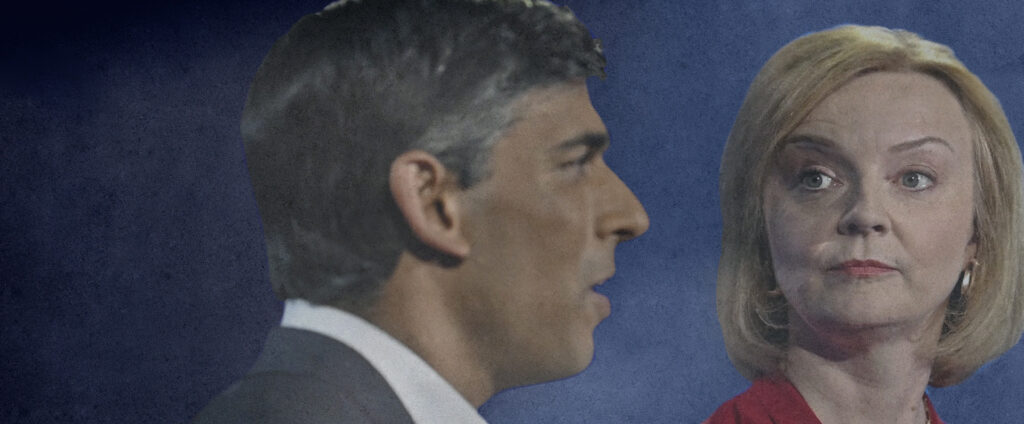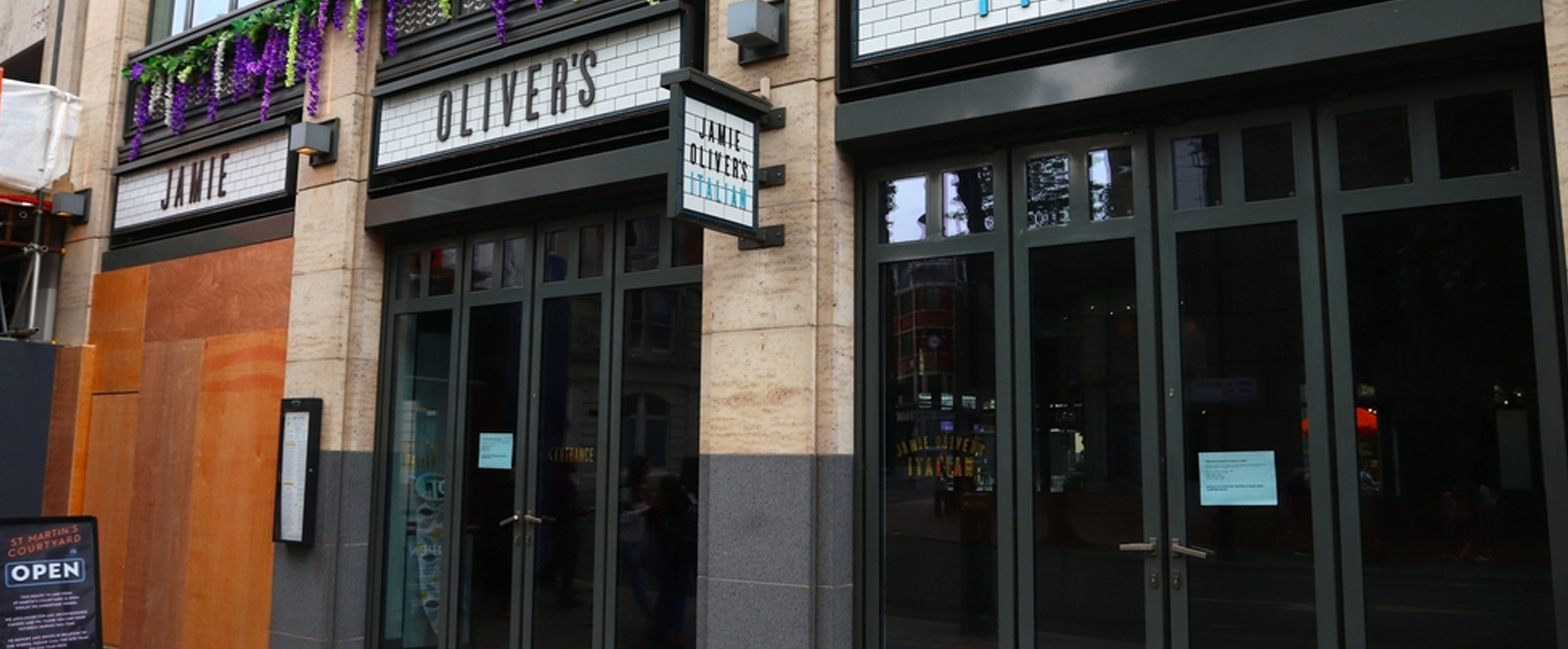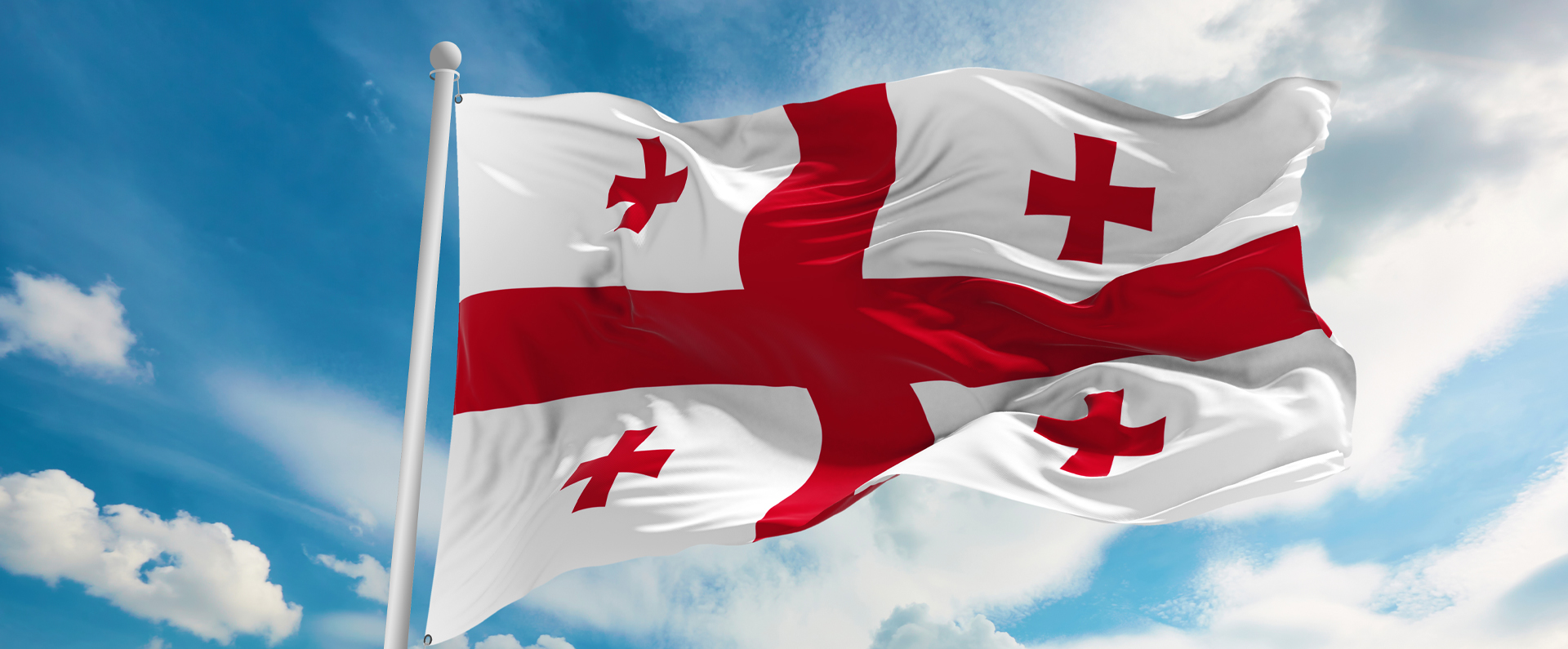
Part 2 of the serialisation of Lord Ashcroft’s book, All To Play For, in The Mail on Sunday on 17 September 2023.
Frosty Liz Truss didn’t even try to hide her personal dislike of Rishi.
In yesterday’s Daily Mail, the Tory grandee LORD ASHCROFT gave his meticulous appraisal of the Prime Minister’s election chances.
Here, in our second extract from his revealing book charting the political career of Rishi, he shows just how bumpy Sunak’s path was from No 11 Downing Street to No 10…
By the summer of 2022, Boris Johnson was beset by allegations over ‘Partygate’ and accusations of lying to Parliament. The PM was, at best, stumbling on.
When Tory MPs were balloted in early June on whether they had confidence in the beleaguered Prime Minister, history does not relate how his Chancellor, Rishi Sunak, voted. Close friends are coy when asked this question. Johnson scraped home with 59 per cent of the parliamentary party backing him.
Shortly after, Chris Bruni-Lowe, a polling strategist, was seated next to Sunak at a dinner and recalls: ‘He was obsessed with how the public saw him and how his approval rating matched up against Boris’s. He knew he was being blamed for the cost-of-living crisis and thought this was unfair.’
After two disastrous by-elections later that month, Oliver Dowden, a close political ally of Sunak, resigned as Conservative Party Chairman, saying he took responsibility for the dire results.
Johnson was convinced his departure was part of an orchestrated attempt by Sunak to undermine him, although Sunak’s camp strenuously deny this.
Less than a fortnight later, on the evening of July 3, the Prime Minister and his Chancellor had their customary Sunday night supper at Downing Street, just the two of them. It would be the last.
They were supposed to be putting the final touches to a long-planned joint speech setting out their economic vision for the country but they also discussed the Chris Pincher affair.
Pincher, the then Deputy Chief Whip, had allegedly groped two men at the Carlton Club while drunk.
Johnson’s office claimed he was unaware that Pincher was prone to such behaviour before appointing him but this later turned out to be stretching the truth (Pincher has since resigned as an MP after losing his appeal against suspension from the Commons).
Sunak had little to say when Johnson asked him what he thought about it. This neutral position is said to have unnerved the Prime Minister.
In fact, Sunak was distracted by what was for him a more pressing matter. He had come to regard the joint speech on the economy as a bad idea.
Johnson, fighting to save himself politically, was prepared to take ever greater risks with the economy, advocating tax cuts because his personal political circumstances dictated it rather than because the economic situation allowed it.
This brought into sharp focus their difference in outlook on economic matters.
As a friend put it: ‘Rishi was always on the side of paying your debts and Boris was always saying, ‘We can always come up with some more money.’
Sunak was also troubled that whenever he thought the two of them had agreed something, Johnson would make a new set of demands based on his own agenda.
That Sunday evening, Sunak concluded that his working relationship with the Prime Minister was all but over. Two days later he told close friends he had made up his mind to resign.
Things suddenly worsened for Johnson when incontrovertible evidence was produced that he had indeed known about Pincher’s proclivities before appointing him to the Whips’ Office. This prompted Sajid Javid, the Health Secretary, to resign. Sunak’s own resignation followed minutes later.
Sunak’s departure tipped the balance as far as Johnson’s premiership was concerned. But, contrary to suggestions at the time, friends of Sunak and Javid insist they did not conspire in the timing of their resignations to set in motion a coup to topple Johnson. An ally who was in regular contact with Sunak says: ‘Rishi was very careful not to plot, not to get a campaign ready.
‘He did want to make his relationship with Boris work if he possibly could, but he came to the view that it was unsustainable.’
Johnson is said to have been livid when he learned of Sunak’s resignation, swearing repeatedly in front of aides about what he regarded as a personal betrayal.
The next day, July 6, a further three dozen members of the Government quit in the space of 24 hours and by the following lunchtime Johnson had resigned.
According to his spin doctor, Guto Hari, Johnson wanted to send a video to Sunak calling him a ‘c**t’, but he resisted the urge.
Sunak is often accused by his political enemies of having spent months carefully planning Boris Johnson’s downfall so that he could trigger a leadership contest and win over enough Conservative Party members to become prime minister himself.
Yet the fact that, in the subsequent leadership race, he was beaten by the party members’ choice, Liz Truss, is surely proof that, whatever the scale of his political ambitions, he could never have been certain of victory.
‘Rishi was fully aware that he might not be the beneficiary of Johnson’s fall,’ says a friend.
‘In that sense his resignation was not a plot to become Prime Minister. He thought the party would be better off with a different leader, but he was aware that votes could go in any direction.
‘Had he just been thinking of his own interests, he would not have resigned, because it’s a time-honoured tradition in the Conservative Party that the assassin doesn’t get to wear the crown. Yes, he thought his resignation would probably bring Johnson down, but he had no idea whether he was going to replace him.’
Early on in the race to elect the new leader, a snap opinion poll of Tory party members made him favourite on 25 per cent, ahead of Truss on 21 per cent.
It would be one of very few polls favourable to him.
He was widely criticised for being a tax-raising Chancellor; viewed with scepticism by many, thanks to leaks about his wife’s tax affairs; and knew he was actively disliked by thousands for – in their eyes – finishing off the frontline political career of Johnson, who was still held in great affection by many party members.
Launching his campaign, he said his priority was to kill the disease of inflation.
Against this, Truss put the word out that, as the only candidate who could unite Red Wall voters in the north of England with traditional so-called Blue Wall Tory voters, she was Johnson’s natural successor.
Meanwhile, Johnson’s supporters swore revenge. ‘Rishi will get everything he deserves for leading the charge in bringing down the Prime Minister,’ an anonymous MP commented ominously.
Among Tory MPs, a 424-word ‘dirty dossier’ on Sunak circulated, depicting him as the Left-of-centre candidate and accusing him of producing a failed Budget ‘that was a welter of contradictions, tax raises and sleights of hand that defied analysis, logic or comprehension’.
For the vote by Tory MPs – the first stage in the election process – there were eight candidates, most of whom were eliminated in preliminary ballots, leaving only Truss and Sunak standing. He had led in every round while Truss only narrowly made it through to the crucial vote, the one by 180,000 Tory party members.
But when it came to how those members would vote, a YouGov poll suggested Truss would beat him by 62 per cent to 38 per cent.
A friend says: ‘Rishi was really up against it. The activists in the party were looking for somebody who was new and who’d stood by Boris. Rishi lost because of that perception of betrayal. He had been cast as the Judas figure.’
Truss’s view was that her route to victory would come by connecting with ‘ordinary’ Tory voters, and portrayed herself as the plucky anti-Establishment candidate who favoured tax cuts. She believed the privately educated Sunak’s personal wealth far removed him from most people’s experiences.
One MP who supported her says: ‘Liz thought then (and still thinks now) that, in Britain, the corporate model and the City are more likely to believe in big government and higher taxes, whereas the Tory voter base is with small business and people who are frustrated by the oligarchy.
‘Big business, vast swathes of the Civil Service, the banks, the Treasury and the Office for Budget Responsibility are part of the Establishment. There’s a groupthink about it all. She put Rishi in that camp.’
One Sunak associate says Truss made little attempt to disguise her personal dislike for him.
‘Rishi found relations with her very difficult. She was very frosty towards him and didn’t engage with him or talk to him much, if at all, on the campaign trail. She was very unfriendly.’
Though rumours about Truss’s personal life were being swapped at the time, including one claim of an extra-marital affair and another that a sex-tape of her existed, Sunak told his team to have nothing to do with what he dismissed as grubby speculation.
During a televised debate, he declared her promise to borrow in order to fund tax cuts to be neither ‘moral’ nor ‘Conservative’ and predicted it would ‘tip millions of people into misery’ by forcing up mortgage rates.
Given subsequent events, some of the blows they traded that night on economic issues were eerily prescient. But a poll of Conservative voters after that debate found that Truss had performed better than Sunak.
She was more effective in speaking directly to the constituency that mattered most for the purposes of the contest: Conservative Party activists. Sunak vowed to complete Brexit and fully ‘take back control’ of Britain’s borders, even if that meant leaving the European Convention on Human Rights.
He took a much tougher line on illegal immigration and grooming gangs than people might have expected from the supposedly left-of-centre candidate of Asian origin. Yet it was Truss who captured the imagination of Tories around the country, as my own research during the leadership election helped explain.
Most had clocked the big policy divide between them over tax and debt, and many agreed in principle with Sunak that the priority should be to rein in the deficit.
But the feeling that people were struggling and needed help now meant that Truss’s pledge of early tax cuts found a ready audience. And the idea that the wealthy Sunak’s gilded lifestyle put him in a different world from most voters dominated their perceptions.
Asked what word or phrase came to mind when they thought about each candidate, the most prominent answer for Sunak was ‘rich’, combined with ‘out of touch’.
His family’s wealth and his wife’s former non-dom tax status were always among the first things spontaneously mentioned about him in focus groups.
Mrs Sunak’s non-dom UK tax status (meaning that she paid UK tax only on her UK earnings) had been revealed in a story that appeared in The Independent in April 2022. Unnamed sources it had spoken to estimated she had saved up to £4.4 million in UK taxes.
Though this was perfectly legal, it was obviously politically toxic for the wife of a tax-raising Chancellor to be accused of avoiding UK taxes herself. Whoever leaked the story did so with the express intention of putting a lasting dent in Sunak’s political career.
In an interview, Sunak defended his wife’s tax affairs robustly, saying: ‘She’s a private citizen. She’s not her husband’s possession.’ He also indicated that he thought the Labour Party was responsible for the ‘unpleasant smears’.
Yet those who have taken a close interest in this part of Sunak’s political career remain convinced that the Labour Party had nothing to do with the leak.
Instead, they believe, a member of Johnson’s inner circle had the right connections and sufficient knowledge of these explosive facts to arrange for the story to be placed in the public domain without Johnson’s fingerprints being near it.
The motive for this piece of skulduggery was simple. With Johnson’s future hanging in the balance, his acolytes thought Sunak posed the only serious threat to his leadership. Compromising him would probably stabilise Johnson.
The Sunday Times claimed that a Whitehall investigation to find the source was under way. It was made clear that a criminal prosecution might even be launched because it is against the law to leak someone’s tax status.
No concrete findings from this investigation have ever been made public because, as far as I have been able to ascertain, it never took flight in any meaningful way.
However, through my own inquiries, I believe that I have established the identity of the culprit.
I have chosen not to name him or her for the time being, but suffice it to say they are extremely lucky not to have faced wider scrutiny so far. For how long their high-profile status will allow them to remain distanced from this dirty trick is anybody’s guess.
By the time of the leadership campaign, views about Sunak’s record as Chancellor were decidedly mixed. There was praise for the furlough scheme and his calm authority during the Covid crisis but anger about wasted money, bungled PPE contracts and rising taxes.
While he was predicted by voters to be a competent premier if he won and to have good judgment in a crisis, Truss was well ahead when it came to being honest with the public, behaving with personal integrity and caring about ‘people like me’.
She duly won, securing 57 per cent of the votes against 43 per cent for Sunak.
When told the outcome ten minutes before the public announcement, they barely exchanged a word. They have spoken only once since, and that was when they greeted each other with a terse ‘Hello’ at the Remembrance Sunday service two months later.
Significantly, though, the result had not been the landslide for Truss that had been predicted. ‘Rishi was very pleased to break 40 per cent,’ reports a colleague.
‘That was important to him psychologically. It was close enough to give him some satisfaction that people had stuck with him through the contest.’ As for what came next, ‘he hadn’t had much time off for more than two years.
‘He planned to play cricket, spend time with his children, do things he hadn’t done for so long.’
An ally says: ‘He wanted to win, but it wasn’t going to be the end of the world to be out of office and be able to speak his mind more.’
Some of Truss’s supporters are convinced that Sunak’s side sought to undermine her government.
One of his friends remembers it differently. ‘His plan was to remain a loyal Conservative and go back to being a constituency MP. He was not planning to pop up and make speeches about Truss-onomics.’
He was well and truly out in the cold and he accepted it.
What came next was a complete surprise.
Sunak’s daughters were on half-term from school and he was eating lunch with them in TGI Friday’s in Teesside, not far from his Richmond constituency, when the dramatic news broke.
Prime Minister Liz Truss, under extreme pressure and widely thought to be out of her depth after a mini-Budget of tax cuts sent sterling into freefall and saw mortgage lenders hiking rates and withdrawing offers, had resigned after just 44 days in office.
The speed of the meltdown took Sunak by surprise. He had not expected to be back in action so quickly.
‘Suddenly there was a new leadership election on and he had to do a lot of thinking very quickly,’ says a friend. ‘He had no doubt at all that he had to claim the leadership. He felt a sense of duty. He thought he was the best person to do the job.
‘I also think he knew that if he didn’t take over in those circumstances, when would he? So even though he knew he’d face this monumentally difficult challenge as PM, he had to go for it.’
With at least 100 backers secured among the parliamentary party (as required by new Tory party rules), he declared his candidacy.
For a while, Boris Johnson was back on the scene as a possible rival but he then withdrew from the race. So, too, did Penny Mordaunt, the only other prospective contender, leaving Sunak as the last candidate standing. He would be crowned Conservative Party leader unopposed.
Just over three years before, he was an unknown junior Minister. Now, aged 42, he had secured the highest office in the land.
It is difficult to overstate the immensity of the task he was taking on.
As well as the daily responsibilities that go with the top job, he had to assemble a Cabinet that would restore confidence within his party and around the country; grapple with a battered economy; confront an unprecedented NHS backlog.
He had to oversee Britain’s support for Ukraine; address the political and trade uncertainties in Northern Ireland caused by Brexit; deal with the wave of strikes prompted by soaring inflation; and square up to the various problems created by cross-Channel illegal immigration.
All this, while taking the fight to a Labour Party that was surging in the polls and preparing for the next General Election, desperate to deny the Tories a fifth term in office.
The unopposed manner of his arrival in 10 Downing Street meant that he was seen by many of the 180,000 Tory members and activists as having no mandate not just among the wider electorate but among a majority of them as well.
He was, some said, merely the emergency choice.
Sunak also had to contend with the potential difficulties of knowing that four previous party leaders were still sitting behind him in the Commons chamber – Sir Iain Duncan Smith, Theresa May, Johnson and Truss – three of whom had been Prime Minister.
No wonder almost everybody agreed that he had accepted a deeply unappealing, and lonely, job.
All To Play For: The Advance Of Rishi Sunak by Michael Ashcroft, published on September 19 by Biteback, at £16.99. © Michael Ashcroft 2023. To order a copy for £15.29 (offer valid to October 2, 2023; UK P&P free on orders over £25) go to mailshop.co.uk/books or call 020 3176 2937
Read this article on:
DailyMail.co.uk


